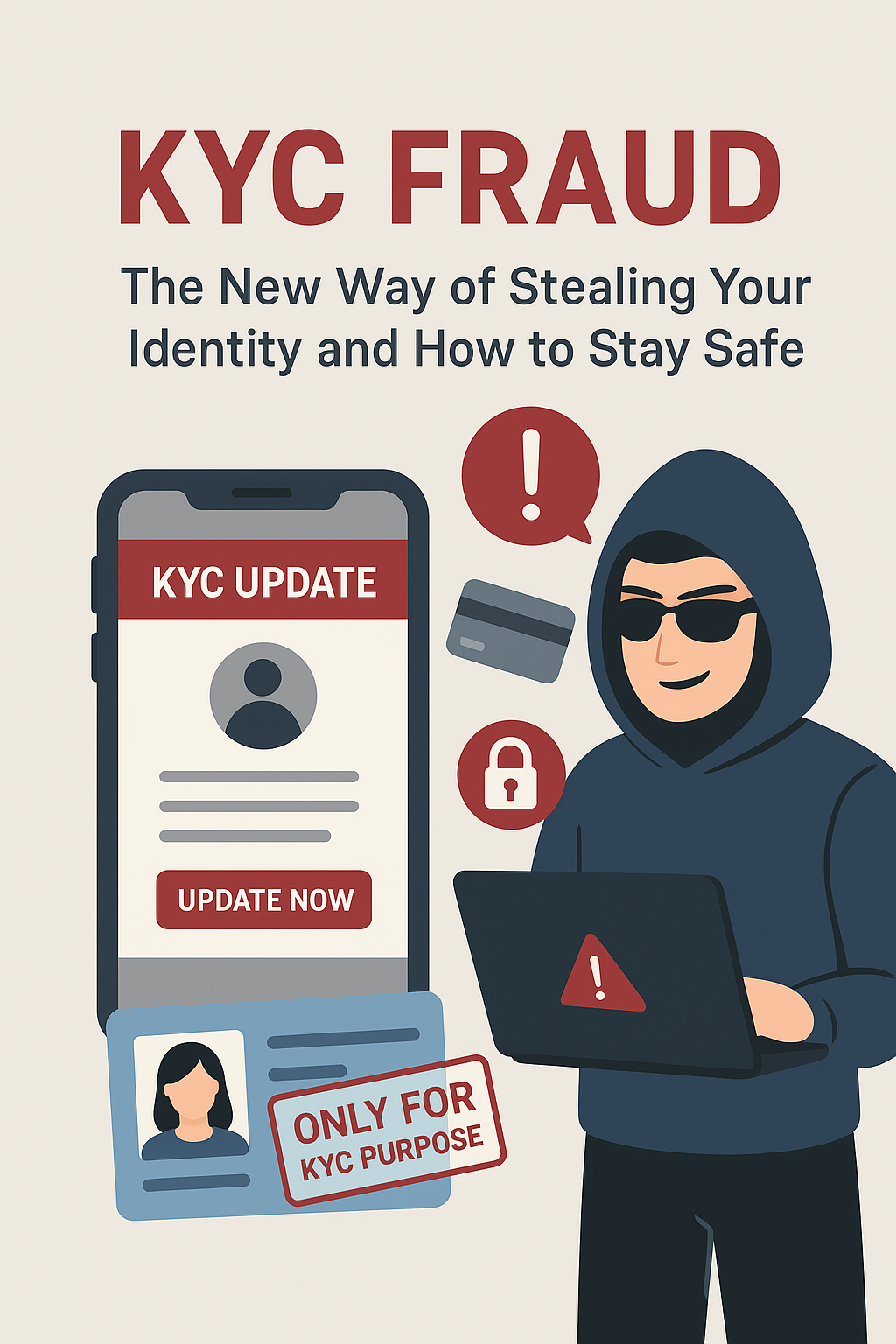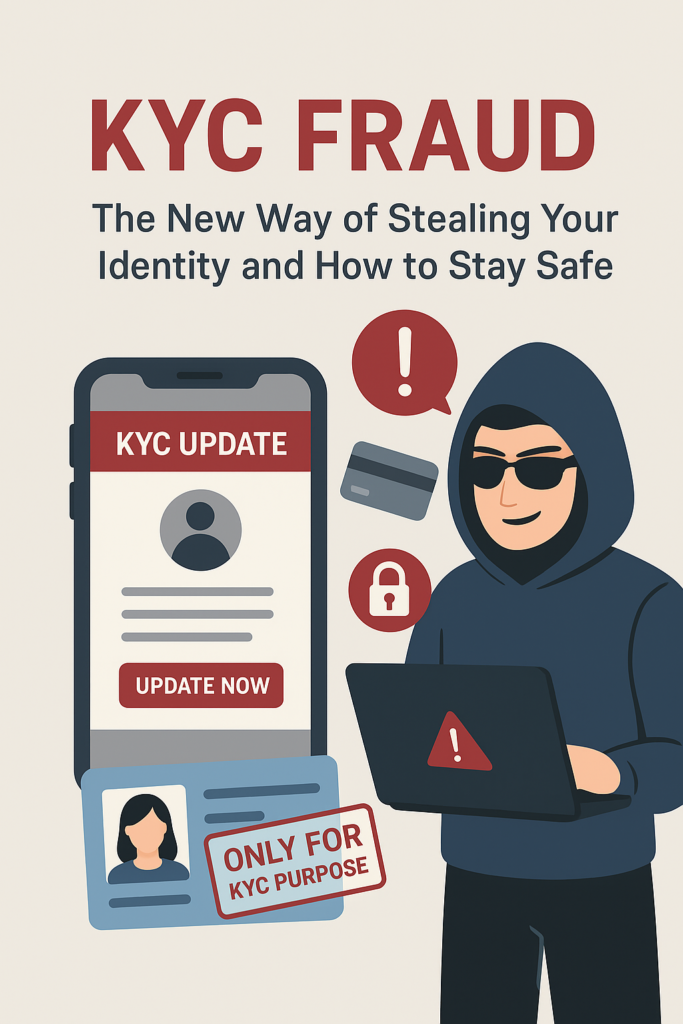
What is KYC Fraud?
KYC stands for “Know Your Customer”, a process used by banks, NBFCs, and financial institutions to verify the identity and address of customers.
It usually involves documents like Aadhaar card, PAN card, voter ID, passport, driving license, and photographs.
Cybercriminals misuse this process to commit KYC Fraud — stealing your KYC details or documents and using them for illegal purposes.
How Does KYC Fraud Happen?
KYC fraud can happen in multiple ways. The most common methods include:
- Fake Calls or SMS
- Fraudsters pose as bank or finance company employees.
- They say things like “Your KYC is not updated, your account will be blocked if you don’t do it.”
- They send links or ask for OTPs to steal your details.
- Fake Websites/Apps
- Criminals create fake banking websites or apps that look like the real ones.
- You enter your KYC data thinking it’s genuine, but it’s stolen.
- Social Media/Email Scams
- Fraudsters send “KYC Update” links on email or WhatsApp to trick you into clicking.
- Physical Document Theft
- Stolen photocopies of your documents can be used to take loans or open fake accounts.
Risks of KYC Fraud
- Fake loans taken in your name.
- Money stolen from your bank account.
- Negative impact on your credit score.
- Your identity could be used for money laundering or other illegal activities.
How to Prevent KYC Fraud
- Never Enter KYC Details on Unknown Links or Apps
- Always use the official website or app of your bank/NBFC.
- Never Share OTP or PIN
- Banks never ask for OTP, PIN, or passwords.
- Verify SMS/Email Authenticity
- Look out for spelling mistakes, unknown numbers, or suspicious links.
- Use Watermarks on Documents
- When possible, write “Only for KYC purpose” on document copies.
- Keep Physical Documents Safe
- Destroy old documents and sign/date new photocopies.
What to Do If You Become a Victim of KYC Fraud
- Immediately Inform Your Bank/NBFC
- File a Complaint on the Cyber Crime Portal (www.cybercrime.gov.in)
- File an FIR at the nearest police station.
- Check Your CIBIL Report for any fake loans or accounts.
Conclusion
In today’s digital world, updating KYC is important — but staying alert is even more important.
Always remember — share your documents only through the right channels, and never trust unknown calls, links, or emails.
Stay safe, stay aware!

